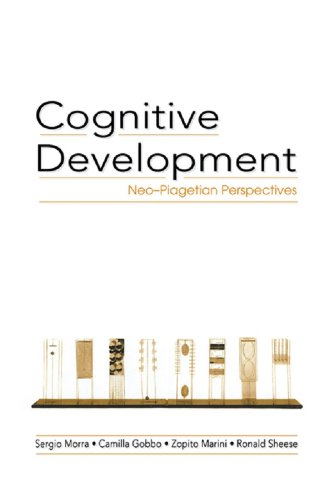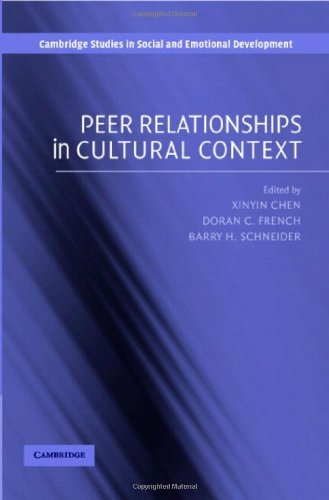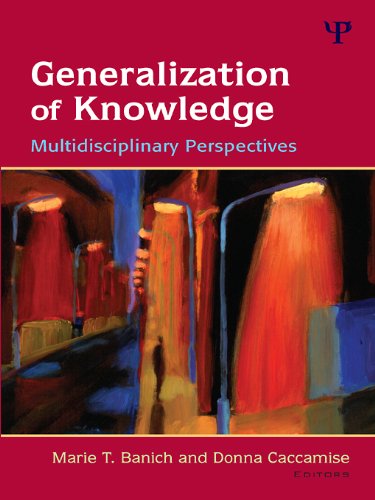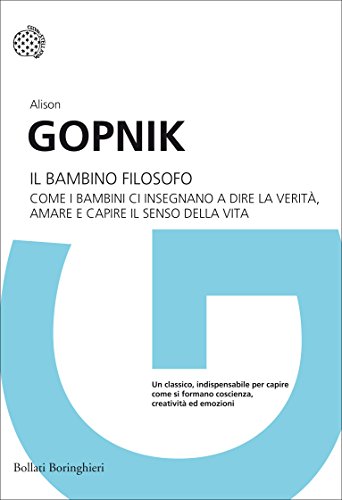
By Faber M.D.
A key element of Faber’s research is the relationship among the onset of childish amnesia in the course of childhood’s later years and the evocative strength of non secular mythology. even if we can't explicitly remember our earliest interactions with our mom and dad or different caregivers, spiritual narratives can and do jog those implicit emotional thoughts in an uncanny approach, which activates us to accede to religion's important tenet--namely, that we're within the care of an all-powerful parental supplier who watches over us and ministers to our wishes. within the bottom line, spiritual event makes an attempt to recapture, and to reinstate in an idealized shape, the symbiotic union of the early parent-child relation.
This pioneering, hugely unique paintings takes the reader to the neurological-psychological bedrock of non secular experience.
Read Online or Download The Psychological Roots of Religious Belief: Searching for Angels and the Parent-God PDF
Best developmental psychology books
Tying jointly nearly 4 many years of neo-Piagetian learn, Cognitive improvement presents a unique severe research and a comparability of recommendations throughout neo-Piagetian theories. Like Piaget, neo-Piagetian theorists take a constructivist method of cognitive improvement, are large in scope, and imagine that cognitive improvement is split into levels with qualitative ameliorations.
Get Peer Relationships in Cultural Context (Cambridge Studies in PDF
This booklet responds to the absence of a complete attention of the consequences of tradition for kid's peer relationships. even supposing study during this box has burgeoned in recent times, cultural concerns have frequently been missed. The chapters faucet such concerns because the influence of social situations and cultural values on peer relationships, culturally prescribed socialization styles and strategies, emotional event and law in peer interactions, kid's social behaviors in peer interactions, cultural facets of friendships, and peer impacts on social and faculty adjustment in cultural context.
New PDF release: Generalization of Knowledge: Multidisciplinary Perspectives
Whereas the thought of generalization suits prominently into cognitive theories of studying, there's strangely little learn literature that takes an summary of the problem from a vast multifaceted viewpoint. This quantity treatments this via taking a multidisciplinary standpoint on generalization of information from a number of fields linked to Cognitive technology, together with Cognitive Neuroscience, computing device technological know-how, schooling, Linguistics, Developmental technological know-how, and Speech, Language and listening to Sciences.
New PDF release: Il bambino filosofo (Italian Edition)
Cos’hanno in mente i nostri figli quando, appena in grado di parlare, si impegnano con tutta l. a. serietà di cui sono capaci nella costruzione di realtà immaginarie? Come si articolano i loro stati coscienti, apparentemente più simili a un magma fangoso che al trasparente flusso cartesiano di cui ci parlano i filosofi?
- Childhood Head Injury: Developmental and Recovery Variables: A Special Double Issue of Developmental Neuropsychology: Special Double Issue of "Developmental Neuropsycho
- Clinical Perspectives on Meaning: Positive and Existential Psychotherapy
- Où commence la violence ? : Pour une prévention chez le tout-petit (La cause des bébés) (French Edition)
- Chronicle of a Silence Endured
- Positive Youth Development: 41 (Advances in Child Development and Behavior)
Additional resources for The Psychological Roots of Religious Belief: Searching for Angels and the Parent-God
Example text
The Psychological Roots of Religious Belief: Searching for Angels and the Parent-God by Faber M.D.
by Steven
4.1



